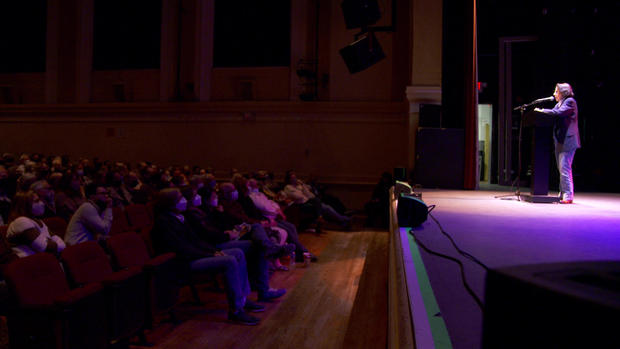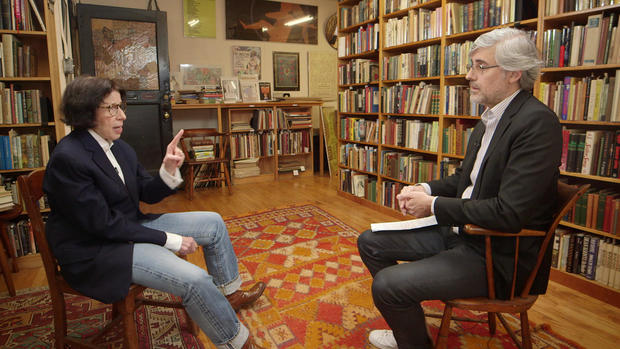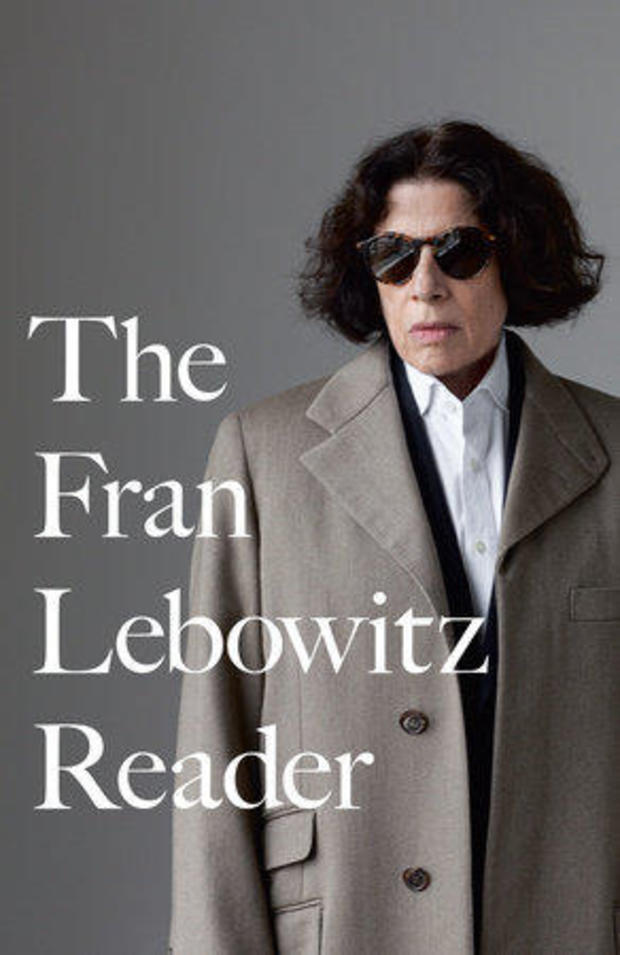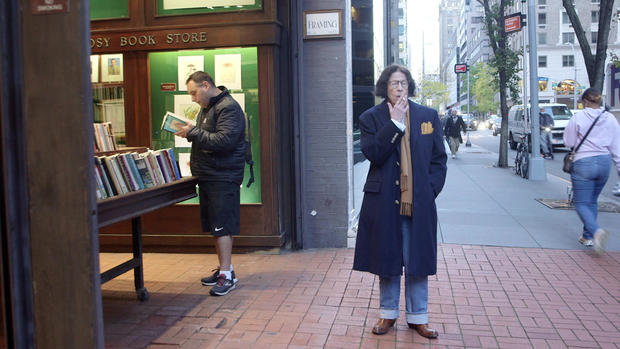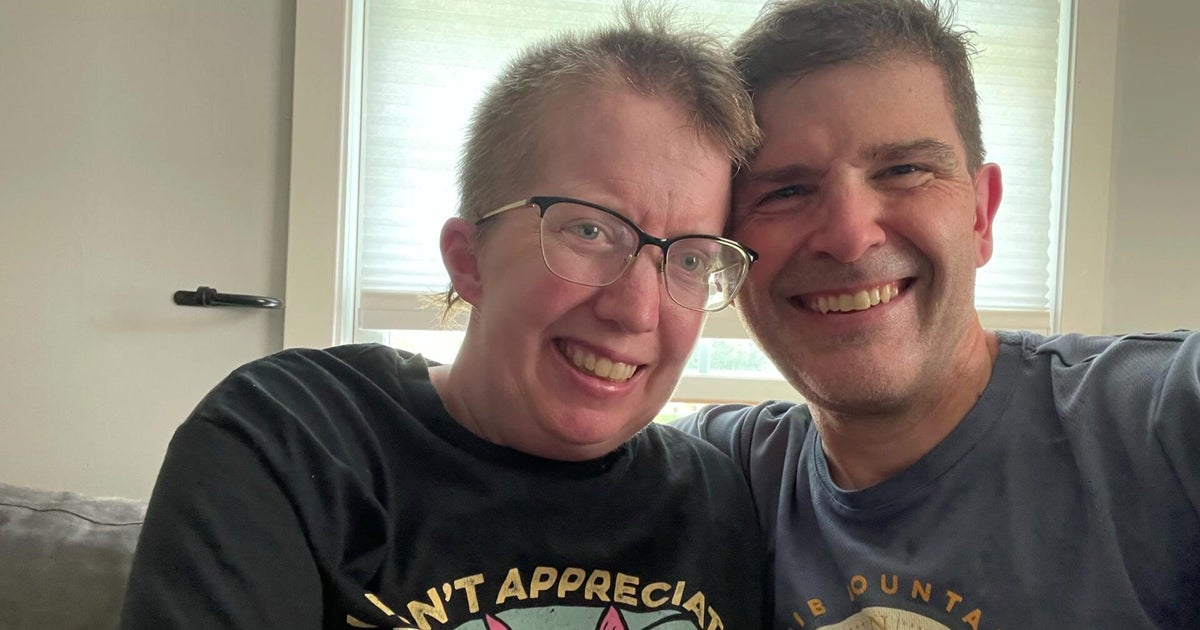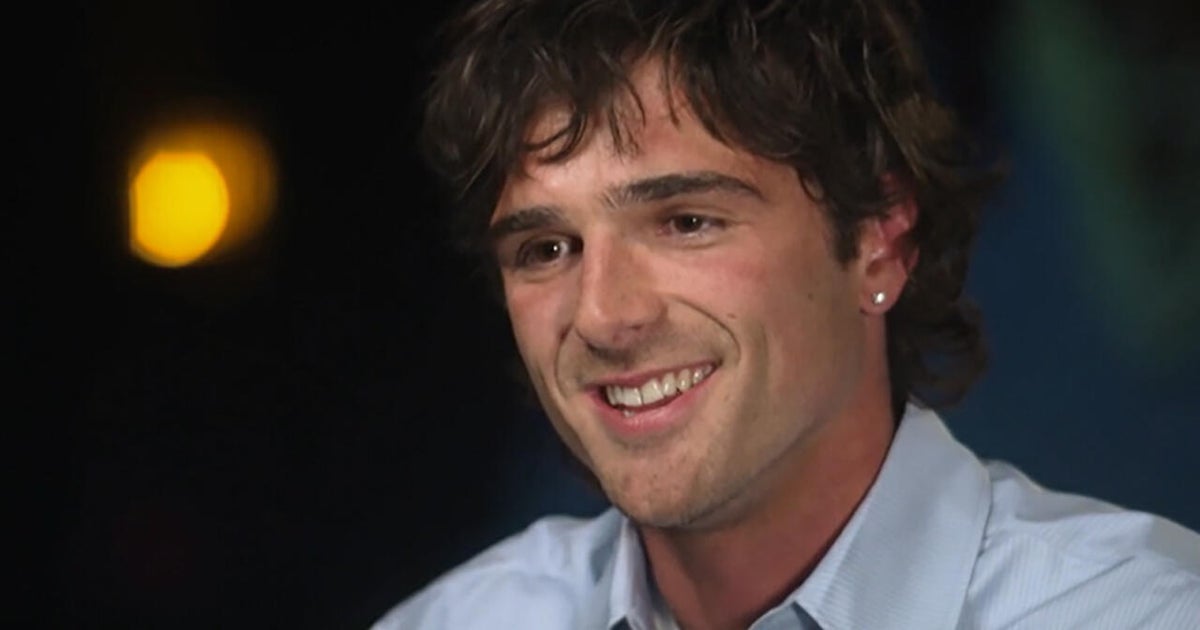Fran Lebowitz speaks her mind
Correspondent Mo Rocca asked Fran Lebowitz, "Did you have strong opinions as a child?"
"I did, but no one cared about them."
"Who did you give them to?"
"Well, I tried to tell them to my parents," Lebowitz said. "But when I was a child, I had to go to sleep. My bedtime was 7:30, 'til I was, like, 13. So, I once said to my mother, 'Why did you make me go to bed so early when I was like 12 years old?' And my mother said, 'To tell you the truth, by 7:30, I just couldn't listen to you anymore.'"
Most writers write for a living. Fran Lebowitz talks. And at a recent appearance at Connecticut's Ridgefield Playhouse, she weighed in on everything from marathons ("Here's when I would run 26 miles: if there was a German soldier behind me with a gun"), to costumes for pets ("Dogs don't need clothing. That's what the fur is"), to her own legendary lack of productivity ("I am such a slow writer, I could write in my own blood without hurting myself").
She's has been speaking her mind for half a century, from her days writing for Andy Warhol's Interview magazine in the 1970s; to her two bestselling collections of comic essays, repackaged into a single volume, "The Fran Lebowitz Reader"; to a Netflix series, "Pretend It's a City," directed by her friend, Martin Scorsese.
… Which brought her distinctly analog sensibility to a decidedly digital platform, though technology has always sort of baffled her.
"I was on a plane, and the guy sitting next to me was on his phone the whole time, and I thought, What is he doing? He was playing a game where it looked to me like he was murdering fruit. Killing fruit! What does he do when he's not doing this? I'm hoping that one day I'm not wheeled into surgery and this guy is like my surgeon, you know?"
Rocca met Lebowitz at the famed Argosy Book Shop in Manhattan, where she checked out the stacks ("I never loved Hemingway. There's, in my opinion, really such a thing as 'too butch'"). Apart from a children's book in 1994, she hasn't published a volume of new writing in 40 years. But audiences don't seem to mind.
And yes, she's got something to say about audiences: "Every single thing, there's a standing ovation. There is over-enthusiasm on the part of the audience, you know, who has absolutely no way to judge the thing to begin with.
"I went to the ballet, maybe now 10 years ago, and I was shocked by the audience. So, the second the first dancer put their foot on the stage, the audience erupted in cheers. I was shocked by this, OK? It used to be, if Baryshnikov managed to hang in the air for maybe, say, a full 15 minutes, there'd be like [mimics polite "golf clap" applause].
"So, the audience, who are they applauding? Themselves!"
Lebowitz grew up in Morristown, New Jersey, where the reception to her wasn't exactly warm.
"Our parents did not pay the kind of attention to us that people pay attention to the children now," she said. "They felt that their job was to instruct us. Like, I would say to my mother, 'Can I please have an apple?' My mother would say, "May I please have an apple.'"
"Well, she was right," Rocca offered.
"I would say, 'May I please have an apple?' She would say, 'No.' OK? So, that was childhood in the 1950s, not just mine."
Lebowitz's scholastic record was not without its blemishes: "I was expelled from high school."
For what? "The headmaster sent a letter, and the letter just basically said, 'She is a bad influence on the other girls and is usurping my power.'"
Perhaps a certain revolutionary wardrobe choice was to blame.
"There was a Halloween party where you wore a costume," she recalled, "and I had a friend who, I don't know where they got it, they had a Castro mask, and it was really good. It really looked like Fidel Castro. And I went with a cigar to this girls' school for Halloween, dressed as Fidel Castro in the '60s, and was suspended for this."
In fact, Lebowitz, who is gay, has never been particularly radical.
"Sometimes kids come up to me in the streets: 'Thank you, thank you for fighting for...' I didn't fight for your rights. I didn't fight for my rights. I just tried to avoid these problems. That's what I did. So I was, you know, I didn't ... 'Thank you for fighting for gay marriage.' I never fought for gay marriage. We never heard of it. Like, it's these two words together didn't exist. And who wanted it? Not me. You know, I'm not against it, and I'm glad you have it if you want it, but no thanks."
Lebowitz has been a vocal advocate for rights of a different sort, as a diehard defender of the right to smoke. In 1994 she said, "I know that cigarette smoke annoys people. Other people's cigarette smoke annoys me. But there are no other laws in this country about annoyance. You're not entitled not to be annoyed."
She told Rocca, "Here's the thing: It's an addiction. It is not, however, a character flaw. It is not a sign of immorality. It is just a bad habit."
Fact is, it's a vice that gives Fran Lebowitz pleasure. Speaking of which …
Rocca asked, "Are people having enough pleasure these days?"
"You know, I don't know," she replied. "But I will tell you this: If you're not having fun now, you will never have fun. So, if you're not having fun in your 20s, by the time you're my age – I will be long dead, you know, but try to remember that Fran said, 'I should have had fun in my 20s.'"
For more info:
- franlebowitz.com
- "The Fran Lebowitz Reader" by Fran Lebowitz (Vintage), in Trade Paperback, eBook and Audio formats, available via Amazon and Indiebound
- "Pretend It's a City" on Netflix
- Ridgefield Playhouse, Ridgefield, Conn.
- Argosy Book Store, New York City
Story produced by Robert Marston and Jay Kernis. Editor: Lauren Barnello.
